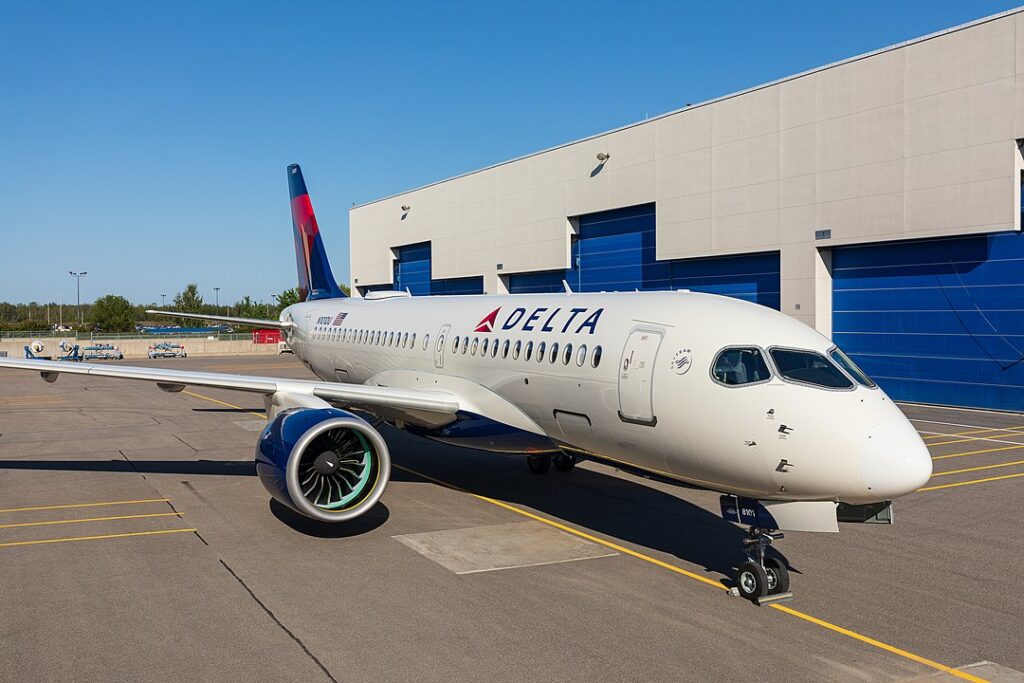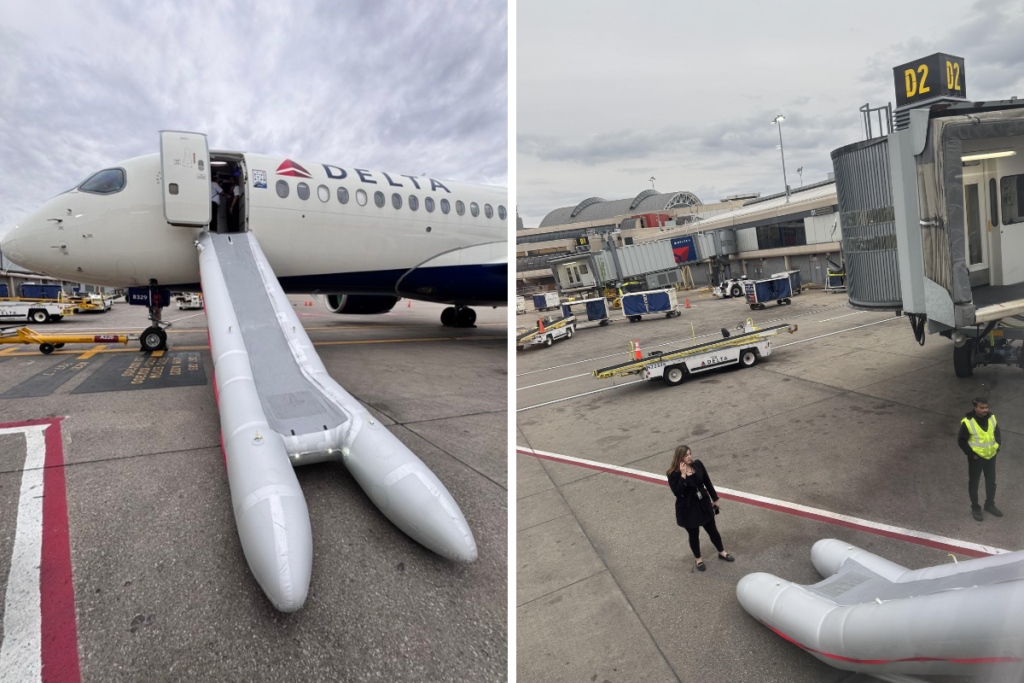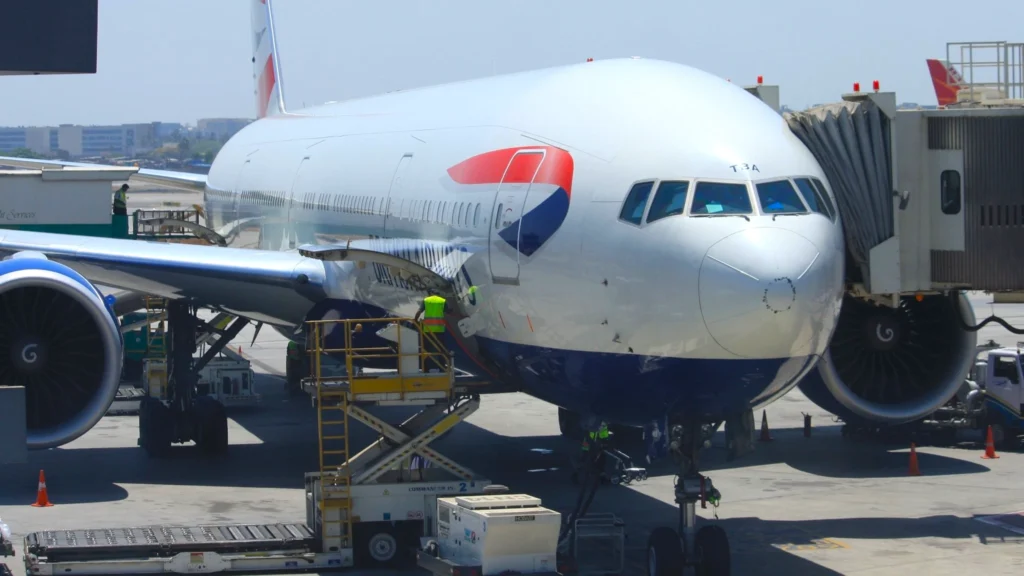
ATLANTA- A Delta Air Lines (DL) flight attendant accidentally deployed an emergency evacuation slide on an Airbus A220 at Pittsburgh International Airport (PIT), causing damage estimated at around $70,000 and delaying passengers on Saturday evening on October 25, 2025.
The crew member, a veteran with 26 years of experience, mistakenly lifted the door handle after arming it for departure, triggering the automatic deployment of the forward left-hand slide — the same door used for the jetbridge connection.


Delta Attendant Mistakenly Deploys Slide
As the aircraft prepared for pushback, flight attendants armed the doors in line with standard pre-departure procedures. The forward crew member then unintentionally raised the door handle while the system was armed, activating the emergency power assist function.
Once engaged, the mechanism automatically forces the door open and deploys the slide within seconds, leaving no time to stop the process.
The deployment caused an operational standstill. Because the slide inflated directly against the jetbridge, passengers were temporarily trapped onboard until engineers manually detached the slide and reconnected the bridge.
Emergency evacuation slides are costly components, with replacements for smaller jets like the A220 typically priced between $50,000 and $70,000.
In some cases, slides can be carefully deflated and repacked, but the process itself costs around $30,000 due to manufacturer handling and inspection fees.
According to PYOK, incidents like this are formally categorized as Inadvertent Slide Deployments (ISDs) within the aviation industry.


Understanding Inadvertent Slide Deployments (ISDs)
ISDs are uncommon but not rare. Airbus data from previous years suggested an average of up to three inadvertent deployments per day across the global fleet. Most occur during the disarming phase after landing when crew members prepare to open doors for arrival.
Despite strict cross-check procedures meant to catch such errors, mistakes still happen—particularly at stations where one flight attendant works alone at the front door.
The risk isn’t just financial. An unplanned deployment on arrival could seriously injure ground personnel or damage nearby equipment like jetbridges and service vehicles. Recognizing this, some airlines have introduced additional safeguards.


Safety Culture and Human Error Prevention
In 2023, British Airways adopted the Japanese “Shisa Kanko” or “point and call” method for door operations.
This involves crew members physically pointing to controls and verbally confirming each action to reinforce focus. Studies show that this approach can reduce human error by as much as 85%.
While Delta has not indicated whether procedural changes will follow this latest incident, the event underscores the importance of continuous training and procedural discipline in cabin safety operations.
Stay tuned with us. Further, follow us on social media for the latest updates.
Join us on Telegram Group for the Latest Aviation Updates. Subsequently, follow us on Google News







